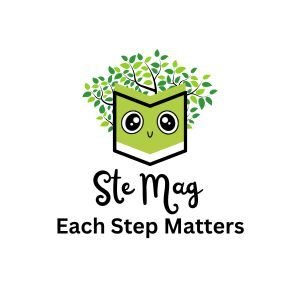Basic Korean Phrases for Beginners: A Comprehensive Guide
Learning a new language can be both exciting and challenging. If you’re interested in Korean, you’re in for a treat! Korean is a beautiful and logical language with a rich cultural heritage. One of the best ways to start your journey is by learning basic Korean phrases. These will help you navigate everyday conversations and give you a solid foundation for further study. In this article, we’ll cover essential Korean phrases for beginners, including greetings, polite expressions, and useful vocabulary for various situations.
Greetings and Polite Expressions
1. 안녕하세요 (Annyeong haseyo) – Hello
This is the most common and versatile greeting in Korean. “안녕하세요” (Annyeong haseyo) can be used in both formal and informal situations. It’s appropriate for meeting new people, colleagues, and even friends and family.
2. 감사합니다 (Gamsahamnida) – Thank you
Expressing gratitude is important in any language. “감사합니다” (Gamsahamnida) is a polite and formal way to say thank you. For a slightly less formal version, you can use “고맙습니다” (Gomapseumnida).
3. 죄송합니다 (Joesonghamnida) – I’m sorry
Apologizing politely is crucial in Korean culture. Use “죄송합니다” (Joesonghamnida) to say “I’m sorry” in a formal context. For a more casual apology, you can use “미안해요” (Mianhaeyo).
4. 네 (Ne) / 아니요 (Aniyo) – Yes / No
These simple yet essential words are “네” (Ne) for yes and “아니요” (Aniyo) for no. They are used in various situations and are fundamental for basic conversations.
5. 안녕히 가세요 (Annyeonghi gaseyo) / 안녕히 계세요 (Annyeonghi gyeseyo) – Goodbye
When saying goodbye, use “안녕히 가세요” (Annyeonghi gaseyo) if the other person is leaving, meaning “Go in peace.” Use “안녕히 계세요” (Annyeonghi gyeseyo) if you are the one leaving, meaning “Stay in peace.”
Basic Conversation Phrases
6. 이름이 뭐예요? (Ireumi mwoyeyo?) – What is your name?
When meeting someone new, ask for their name by saying “이름이 뭐예요?” (Ireumi mwoyeyo?). To introduce yourself, you can say “제 이름은 [Your Name]이에요/예요.” (Je ireumeun [Your Name] ieyo/yeyo).
7. 어디에서 왔어요? (Eodieseo wasseoyo?) – Where are you from?
To ask someone where they are from, use “어디에서 왔어요?” (Eodieseo wasseoyo?). To answer, you can say “저는 [Your Country]에서 왔어요.” (Jeoneun [Your Country] eseo wasseoyo), meaning “I am from [Your Country].”
8. 몇 살이에요? (Myeot salieyo?) – How old are you?
Age is an important aspect of Korean culture, often determining the level of formality in interactions. Ask someone’s age with “몇 살이에요?” (Myeot salieyo?). To respond, say “저는 [Your Age] 살이에요.” (Jeoneun [Your Age] salieyo), meaning “I am [Your Age] years old.”
Useful Vocabulary for Daily Situations
9. 화장실 어디예요? (Hwajangsil eodiyeyo?) – Where is the bathroom?
This is a very practical phrase to know. Ask “화장실 어디예요?” (Hwajangsil eodiyeyo?) when you need to find the bathroom.
10. 이거 얼마예요? (Igeo eolmayeyo?) – How much is this?
When shopping, you’ll need to know the price of items. Use “이거 얼마예요?” (Igeo eolmayeyo?) to ask how much something costs.
11. 도와주세요 (Dowajuseyo) – Please help me
In case you need assistance, use “도와주세요” (Dowajuseyo) to politely ask for help.
12. 영어 할 수 있어요? (Yeongeo hal su isseoyo?) – Can you speak English?
If you need to communicate in English, ask “영어 할 수 있어요?” (Yeongeo hal su isseoyo?) to find out if the other person can speak English.
Numbers in Korean
Knowing numbers is essential for various everyday tasks like shopping, telling time, and counting. Here are the basic numbers from one to ten in Korean:
- 하나 (Hana) – One
- 둘 (Dul) – Two
- 셋 (Set) – Three
- 넷 (Net) – Four
- 다섯 (Daseot) – Five
- 여섯 (Yeoseot) – Six
- 일곱 (Ilgop) – Seven
- 여덟 (Yeodeol) – Eight
- 아홉 (Ahop) – Nine
- 열 (Yeol) – Ten
Practice Exercises
To help solidify your understanding of these basic phrases, try practicing them in different scenarios. Here are a few exercises to get you started:
- Introduce yourself to a new friend:
- “안녕하세요, 제 이름은 [Your Name]이에요.”
- Ask someone their name:
- “이름이 뭐예요?”
- Find out where someone is from:
- “어디에서 왔어요?”
- Ask for the price of an item while shopping:
- “이거 얼마예요?”
- Request help in a busy market:
- “도와주세요!”
Conclusion
Learning these basic Korean phrases is a great starting point for anyone new to the language. They will help you navigate everyday conversations and make a positive impression on native speakers. Practice these phrases regularly, and don’t be afraid to use them in real-life situations. With time and effort, you’ll find yourself becoming more confident and proficient in Korean. Happy learning!
